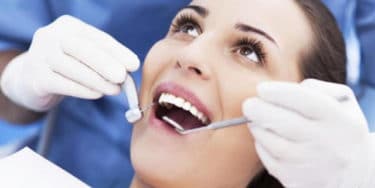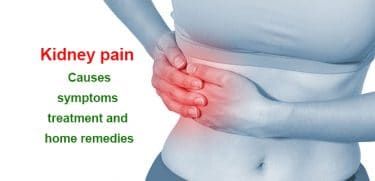Jaw pain is a common condition affecting millions of people. There are many health problems that can cause jaw pain. The most common cause is temporomandibular joint (TMJ) disorders. Dental problems, sinusitis, rheumatoid arthritis, trigeminal neuralgia or mumps can also cause jaw pain. Having a wide range of causes of pain can make the diagnosis and treatment difficult. Accurate diagnosis is crucial for the success of the treatment. You can also alleviate jaw pain, which is mostly treated by non-invasive methods, with some simple methods you can use at home.
Table of Contents
Causes of jaw pain
Jaw pain can have many different causes, ranging from tooth problems to heart attacks. The most common causes of jaw pain are:
Temporomandibular joint (TMJ) and muscle disorder
The jaw bone is connected to the skull by a pair of joints called temporomandibular joints (TMJ). The TMJ, located just in front of the ears, helps the opening and closing of the mouth. TMJ is also responsible for chewing muscles. TMJ disorder is the most common cause of jaw pain. This problem, which can be seen in 1 out of 8 people, is more common among women.
Causes of TMJ disorders
- Pain coming from muscles that controls jaw movement
- Injury of jaw joint
- Dislocation of a disc that prevents jaw movement
- Calcification of the protective disc that supports the jaw joint
Damage to the jaw joint or the muscles that control your jaw movement can be caused by several factors. Risk factors for TMJ disorders:
- Tooth grinding at night
- Squeeze the jaw because of stress or anxiety
- Jaw joint trauma
Cluster headache
Cluster headaches, which often cause pain behind or around the eyes, can also spread to chin depending on severity. Cluster headache is one of the most severe headache types.

Sinus problems
Sinuses, which are air-filled spaces, are located near the jaw joint. When they become infected (sinusitis), they become filled with phlegm, which can cause pain by putting pressure on the jaw joint.
Dental problems
Possible dental problems that may cause jaw pain are:
- Toothache caused by a cavity or abscess
- Tooth cracking or sensitivity to temperature or pressure
- Gum diseases that can damage the jaw bone
Make an appointment with your dentist immediately for these problems. Rinse your mouth with lukewarm water and use floss until treatment.
Trigeminal neuralgia
Trigeminal neuralgia is a condition caused by compression of facial nerves. Since the trigeminal nerves cover most of the face, including the upper and lower jaws, nerve entrapment can cause severe jaw pain.
Heart attack
A heart attack can cause pain in other parts of the body other than the chest, such as the arms, back, neck and chin. The pain that starts in your heart can be felt elsewhere in the body. For some people, jaw pain can be the only symptom of a heart attack. Especially women may experience jaw pain on the left side of their face during a heart attack.
Trauma
Caries, edema, tooth breakage or loosening caused by a blow to the jaw can cause prolonged jaw pain.
Rheumatoid arthritis
Rheumatoid arthritis (joint rheumatism) is an autoimmune disease that causes the body to accidentally attack healthy tissues, and cause swelling, and may attack the temporomandibular joint (TMJ). It can damage the cartilage, which makes the jaw to move smoothly, causing movement limitation and pain in the jaw.
Other diseases that may cause jaw and facial pain include mumps, tetanus, hypothyroidism, lyme disease, multiple sclerosis, lupus, fibromyalgia and some psychiatric disorders.
What kind of doctor do I see for jaw pain?
Depending on the source of the jaw pain, the specialist who will start a treatment may vary. However, the first place to visit is dentist. If your dentist detects that your problem is not caused by your teeth, he/she can refer you to an ENT specialist.
Diagnosis of jaw pain
Finding which problem is causing jaw pain is extremely important for the success of treatment. The following tests can provide information about the cause of jaw pain:
- Physical examination: Nerves, neck bones, chin, mouth and muscles are examined carefully.
- Patient history: Information is obtained about the patient’s medical history and pain history.
- Laboratory tests: Blood test for erythrocyte sedimentation rate, which can be used to diagnose painful conditions.
- Some radiological imaging procedures such as X-ray or MRI are used.
- Psychological and psychiatric tests can be done.
If the doctor suspects that the jaw pain is caused by a particular disease, he/she may request further tests. If necessary, joint decisions may be made with other departments for diagnosis.
What’s good for jaw pain?
Treatment of jaw pain is determined by the cause. However, you can relax the pain with some methods at home whenever you feel it through the treatment process:
- Hot or cold application: Put the ice in a plastic bag, wrap in a thin cloth and apply to the aching side for 10 minutes. Take a 10 minute break and repeat the process. Or you can soak a clean cloth in warm water and apply it to your chin. The combination of wet and warm can relax the jaw muscles and relieve pain. Wet the cloth frequently to maintain the heat.
You can also use ice packs that are sold in pharmacies for hot or cold application. However, do not forget to cover your skin with a cloth, especially when applying hot, to prevent damage to your skin.
- Over the counter painkillers: Medications such as ibuprofen and acetaminophen can help reduce your pain.
- Massage the aching area: With your index finger and middle finger, apply pressure to the aching areas of your chin. You can start with the area just in front of the ear where the jaw joints meet. Massage 5 to 10 times in a circular motion and then open your mouth. Then repeat the massage.
Treatment of jaw pain
Noninvasive treatment methods are preferred in the treatment of jaw pain. However, botox or surgical methods can be used when these methods cannot be benefited. Preferred methods in the treatment of jaw pain:
Mouthpiece
The mouthpiece is a plastic tooth protector that is produced to fit to your upper or lower teeth. This apparatus, which you will wear before bedtime, helps protect your jaw and teeth if you are grinding or squeezing your teeth in your sleep. You can find the mouthpiece in pharmacies, but you can use the mouthpiece that your dentist will make for you for a longer and more comfortable way.
Muscle relaxants
If your pain persists despite the use of a mouthpiece, your dentist may prescribe muscle relaxants to reduce tension in the jaw. However, these drugs may not always help patients with TMJ disorder.
Botox Injections
Botox is a more invasive method than other methods, and botulinum toxin is injected into the jaw muscles. This method allows the jaw muscles to be tightened and may help alleviate jaw pain, possibly caused by TMJ disorder. Botox injection is a long treatment that may last for months and may need to be repeated.
Chin surgery
In very rare cases, if the patient has not responded to any treatment, chin surgery may be performed to correct TMJ disorder. This treatment is usually directed to people suffering from severe pain due to structural problems in the jaw joint.
Prevention of jaw pain
- Reduce stress: If your jaw pain is caused by squeezing your chin, you can try to reduce your stress by using yoga, meditation techniques or stress diary.
- Avoid hard foods when chewing: Hard or crispy or crunchy foods, such as apple, ice, dried meat, which require constant chewing, such as chewing gum, can put too much strain on your chin and cause pain.
- Stay away from caffeine: Morning coffee can increase caffein content in your body, which leads to muscle tension. By reducing coffee and tea consumption, you can avoid chin pain. However, if you consume a lot of caffeine in your routine life, you may experience muscle tension initially caused by caffeine withdrawal.
- Use calcium and magnesium supplements in consultation with your doctor.
- Avoid yawning too much.
- Don’t lie on your stomach.
- Do not carry bags on your shoulder for a long time, change shoulders frequently.
- Have regular dental care.




